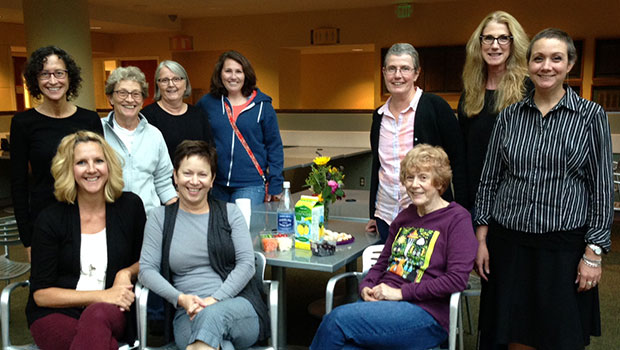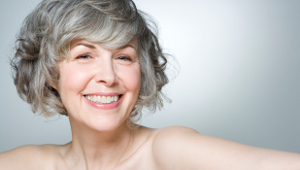Lemonade from lemons: Breast cancer group gains momentum

What’s next for this peer group of survivors focused on positive action?
What’s the mood at Group Health’s “Lemonade” breast cancer support group? “Most of the time we’re laughing,” says Evette Ludman, PhD, the Group Health Research Institute (GHRI) scientist and breast cancer survivor who is facilitating the group.
Although Group Health has long provided a support group for patients with all types of cancer, Group Health plastic surgeon Laurence “Lonnie” Yeung, MD, believed that women with breast cancer needed their own group. Dr. Ludman came to share that opinion when she received her own diagnosis in 2012. So Drs. Yeung and Ludman teamed up to apply for a Group Health Foundation Partnership for Innovation (PFI) grant to explore the feasibility and acceptability of such a group and to measure participant satisfaction.
Lemonade has been meeting monthly since January, with nine to 13 participants at each session. Each woman is at a different place in her journey through diagnosis, treatment, and survivorship. Meetings start with an educational presentation by an outside speaker. Topics range from post-operative self-care and reconstructive surgery to yoga, nutrition, and where to find the right bra. After the speaker leaves, the women spend the next hour talking. They share experiences and offer advice, sometimes literally showing their scars during discussions about mastectomies or reconstructive surgery. All are intimately familiar with fear and stress, but the energy is upbeat. The focus is on positive action and emotional support.
“We don’t wallow around!”
The case against wallowing
Not all support groups end up being helpful, according to Dr. Ludman. Previous evidence showed that it tends to bring women down if they talk only about their dissatisfactions. In contrast, Lemonade’s participants keep the meetings upbeat. “We don’t wallow around!” Dr. Ludman declares. “We are not a group about feeling sorry for ourselves and gloom and doom. We are focused on empowering ourselves with education and sharing positive tips and solutions that come from experience.”
And while there’s no definitive answer yet, some studies indicate that “not wallowing around” may help improve cancer survival rates. “There is still a contentious debate among researchers regarding stress and cancer survival,” says Salene Jones, PhD, a clinical psychologist and research fellow on the Lemonade team who has studied the impact of stress on survivorship. “But we do know that group interventions reduce stress and anxiety, and some studies indicate that these stress-reduction interventions may improve survival rates,” she adds. “Stress and anxiety tend to be especially prevalent right after diagnosis and during the first year—and supporting women during this time can help alleviate that stress and anxiety.”
Stress reduction is definitely part of Lemonade’s appeal, say group members, who asked to be identified by first name only. According to Norma, “Cancer is a scary word, and the support you get from those who have been there makes it easier. My last two surgeries have been a breeze. Perhaps having these women has made it a more relaxing experience and consequently an easier experience.”
Lynn, another participant, says, “I feel that group support helps reduce anxiety and stress—and improves my mood and ability to handle stress. It helps us to feel more in control in situations where we have minimal control. It also reduces the use of other Group Health resources.”
Hope agrees: “Continued patient support outside the doctor’s office is a great resource and has certainly been helpful to me.”
What’s next?
The Lemonade pilot has proven both feasible (something Group Health is capable of supporting) and acceptable (something patients like and continue to attend). And new patients keep joining each month. The final test will be whether the group can be sustained past October 2014, when PFI grant funding runs out. After that, group members will need to step up and assume leadership roles, including that of facilitator.
Current participants say that were it up to them, Lemonade would carry on for years to come. Women who have completed their treatments still attend, and some express a desire to continue coming for as long as their schedules allow. They’re eager to share their hard-earned knowledge with the newly diagnosed. As long as breast cancer keeps throwing “lemons” into women’s lives, this group will help make lemonade from them.
by Janet Hendrickson

Group Health Research News October 2014
In this issue
- Getting to Goldilocks: 'Just right' breast cancer screening
- Lemonade from lemons: Breast cancer group gains momentum
- Wall Street Journal shines light on our patient researchers
- GHRI names 21 clinical associates
- Nurse-led TEAMcare benefits patients with chronic conditions
- Ultrasound could replace CT scans as first test for kidney stones, lowering radiation


